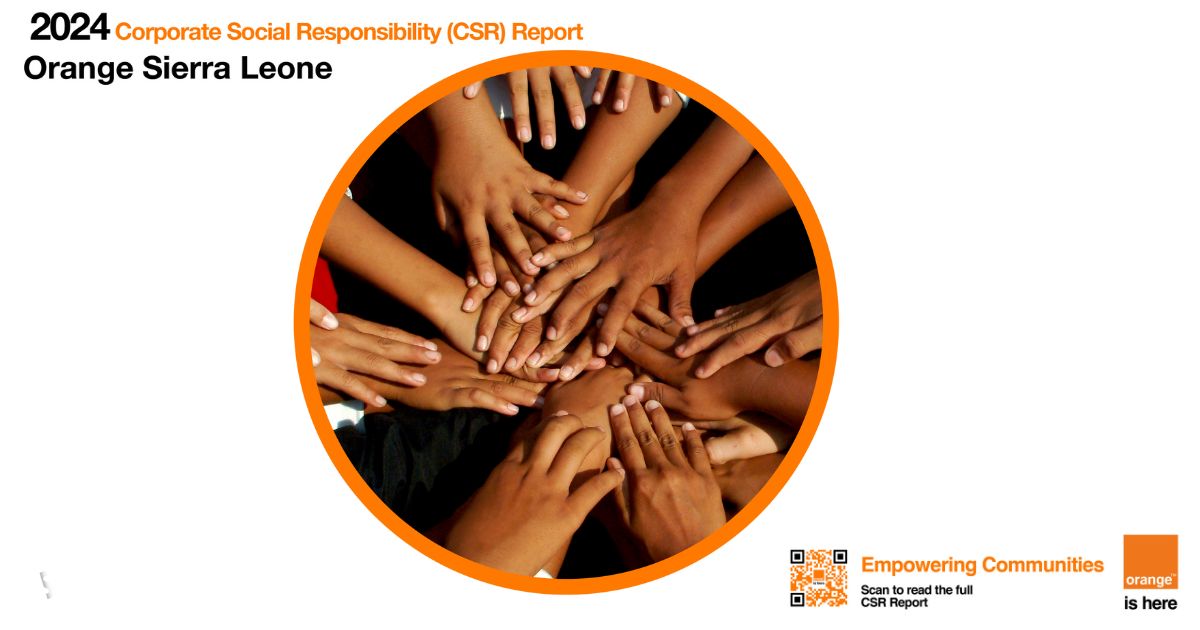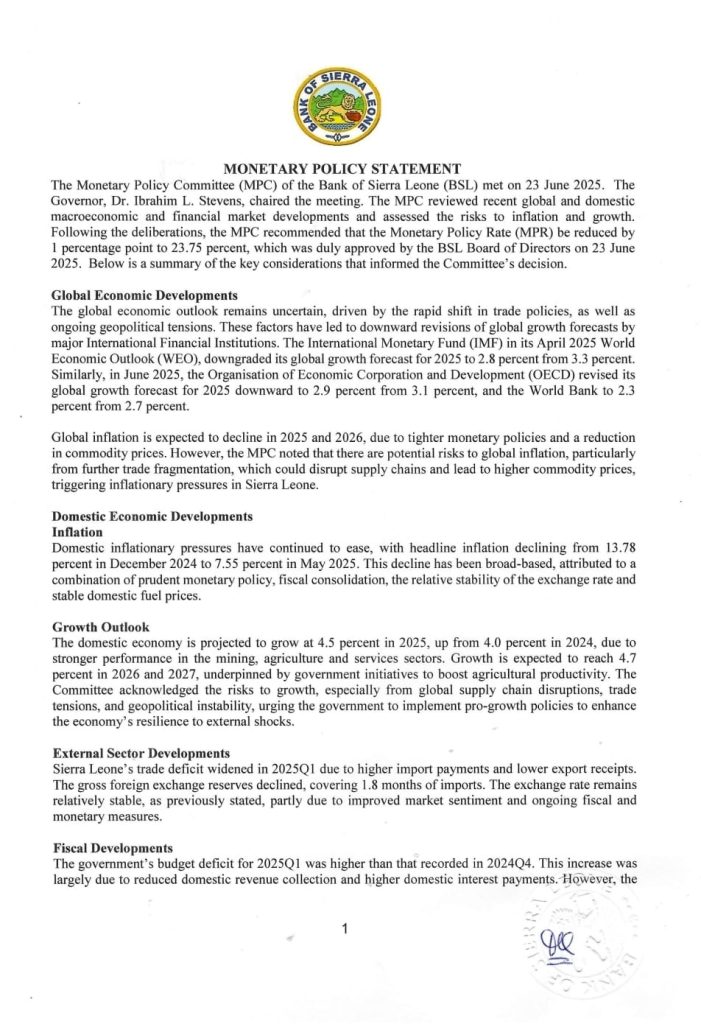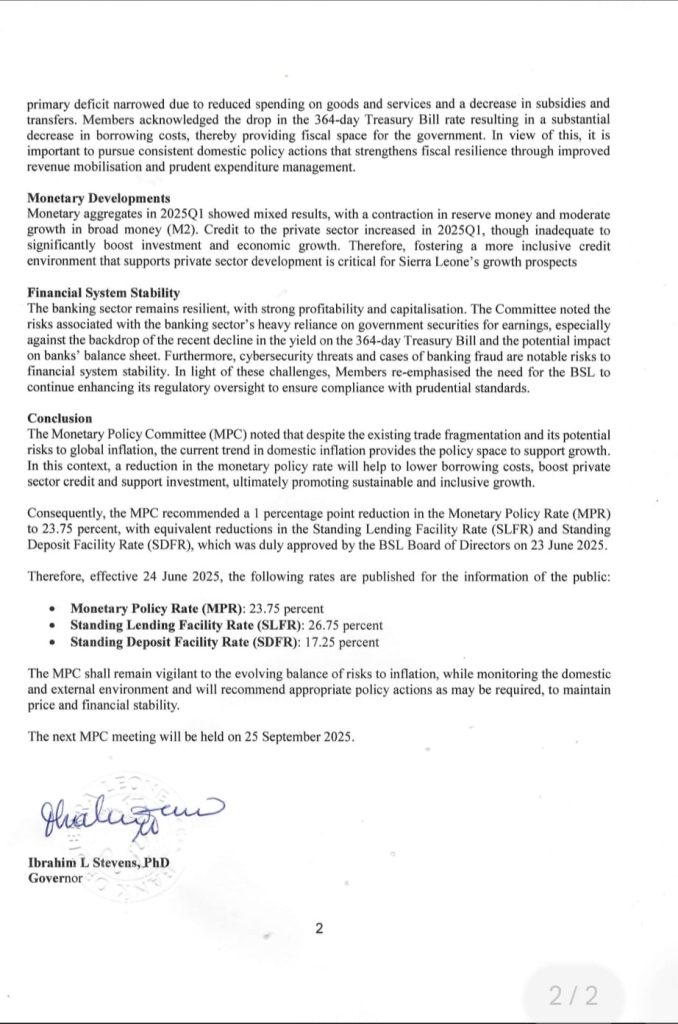Orange Sierra Leone has published its 2024 Corporate Social Responsibility (CSR) Report, highlighting major achievements in national development, digital advancement, environmental sustainability, and community well-being.
The report reflects the company’s continued commitment to supporting government priorities and improving lives through inclusive and responsible business practices.
Strong Economic Contribution and Local Empowerment
In 2024, Orange Sierra Leone contributed NLe781 million directly to the national economy through taxes, licenses, wages, and other statutory payments. The company also played a vital role in supporting Sierra Leonean businesses, generating NLe998 million in revenue for local suppliers across multiple sectors. This aligns with Orange’s strategy to prioritize local partnerships and strengthen domestic value chains.
Expanding Digital Inclusion Nationwide
A major highlight of the report is the expansion of digital access across the country. In 2024, 95% of the population was covered by 4G broadband, enabling more Sierra Leoneans to access online services, education, and business opportunities. To ensure network resilience and reduce carbon emissions, approximately 70% of Orange’s network sites are now solar-powered, reflecting the company’s investment in clean and sustainable energy.
Environmental Commitment Through Reforestation
Orange also advanced its environmental commitments, planting 10,000 trees in Kawase Hill, Moyamba District. This reforestation effort is aimed at restoring degraded land, protecting biodiversity, and supporting climate resilience in rural communities.
Youth Empowerment Through Skills and Innovation
The Orange Digital Center (ODC) continued to serve as a national hub for education, innovation, and entrepreneurship. In 2024 alone, the ODC trained over 14,500 young people in digital literacy, coding, entrepreneurship, and technology-based skills.
- Women represented 47% of total trainees, reflecting the company’s drive toward gender inclusion.
- 38% of beneficiaries secured job opportunities or started income-generating activities, demonstrating the centre’s impact on employability.
Community Impact Through the Orange Sierra Leone Foundation
Through its foundation, Orange impacted 14,627 beneficiaries across the country with programmes focused on education, health, women’s empowerment, youth development, and community resilience. Initiatives included scholarships, rural school support, digital education for girls, maternal health partnerships, breast cancer awareness, and emergency community support projects.
Driving a National Vision Through Responsible Business
The CSR Report emphasizes Orange Sierra Leone’s dedication to supporting the government’s development agenda especially in digitalization, youth employment, community health, and economic sustainability. The company reaffirmed its commitment to inclusive growth, responsible technology use, and environmental stewardship.
In CEO Sekou Amadou Bah’s statement accompanying the report, he noted, “Our CSR ambition is a direct reflection of our brand values: Care, Bold, and Responsible. It speaks powerfully to our renewed brand message: Orange is Here! This presence goes beyond the physical it symbolizes our unwavering dedication to improving the lives of Sierra Leoneans in meaningful and sustainable ways.”
Orange Sierra Leone noted that its achievements are the result of collective effort across staff, partners, customers, and communities, and reaffirmed its dedication to making technology a force for positive change.
To access the Full Report, Scan the QR Code below or visit the company’s official website: https://www.orange.sl/en/csrannualreport-2024.html
With its ambitious goals and growing impact, Orange Sierra Leone continues to position itself not only as a leader in connectivity and innovation but also as a driving force for national transformation.
















